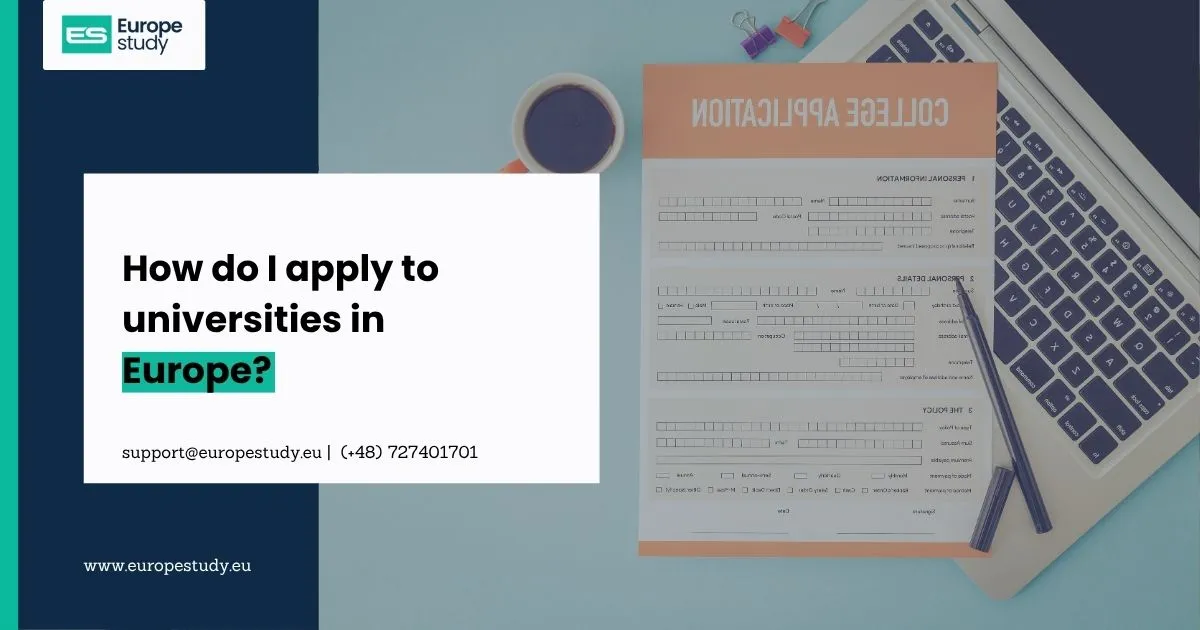
How do I apply to universities in Europe?
Applying to universities in Europe can be a rewarding journey that opens doors to world-class education, diverse cultures, and exciting career opportunities. However, the process involves several key steps—from choosing the right program to securing a student visa. Each university and country may have its own unique set of requirements, so being well-prepared and organized is essential.
1. Research and Choose the Right University and Program
Define Your Academic Goals
Begin by identifying your area of interest and the type of program you wish to pursue—whether it's a Bachelor's, Master's, or specialized course.
Explore European Countries and Universities
Different European countries offer various academic strengths, tuition models, and living costs. Research universities that align with your academic goals.
Examine Program Details
Check the curriculum, teaching language (English or local language), program duration, and any available specializations.
Look Beyond Rankings
While university rankings can be useful, focus more on how well a program fits your personal and academic interests.
Visit University Websites
Each university’s official website (particularly the international student or admissions section) will offer detailed information about the application process, deadlines, and entry requirements.
2. Understand Admission Requirements
Academic Qualifications
For Bachelor's programs, a recognized high school diploma or equivalent is required. For Master's programs, a relevant undergraduate degree is usually necessary.
Language Proficiency
If the program is taught in English, you may need to submit IELTS, TOEFL, or other test scores. For programs in local languages (e.g., German, French, Spanish), proficiency in that language will be required.
Program-Specific Requirements
Some programs may ask for standardized test scores (e.g., GRE, GMAT), portfolios (for design or art fields), or interviews.
Deadlines
Application deadlines vary by university and country. Some follow centralized timelines (e.g., UCAS in the UK), while others set their own. Start early to avoid missing key dates.
3. Prepare Your Application Materials
Academic Transcripts
Collect and certify your transcripts from all previous educational institutions.
Letters of Recommendation
Ask professors, teachers, or employers who are familiar with your academic or professional work to write your reference letters.
Statement of Purpose (SOP)
Write a clear and compelling SOP that explains your background, motivation for choosing the program, and your career goals.
Curriculum Vitae (CV) or Resume
Highlight your academic achievements, extracurricular activities, internships, and work experience.
Language Proficiency Test Scores
Submit your official test scores as required by the program.
Passport Copy
Ensure your passport is valid for the duration of your studies.
Financial Proof
Some universities or visa authorities may require you to show proof of sufficient funds to support your stay and tuition costs (via bank statements or sponsorship letters).
4. Submit Your Application
Online Application Portals
Most European universities accept applications through their own online portals or national platforms (e.g., Studielink for the Netherlands, UniAssist for Germany).
Application Fees
Some institutions may charge a fee for processing your application—usually between €30 and €100.
Check Submission Deadlines
Ensure you submit your application and all required documents before the official deadlines.
5. Apply for a Student Visa
EU vs. Non-EU Citizens
Visa requirements differ depending on your nationality. EU/EEA citizens generally don’t need a student visa, while non-EU students must apply.
Contact the Embassy or Consulate
Reach out to the embassy or consulate of the country where you’ll study to get accurate information on visa requirements.
Prepare Visa Documents
You’ll likely need:
-
University acceptance letter
-
Proof of financial means
-
Passport photos
-
Health insurance
-
Completed visa application form
-
Proof of accommodation
Additional Tips for a Successful Application
-
Start Early: Begin researching programs and gathering documents at least 6–12 months before deadlines.
-
Stay Organized: Keep a checklist of each university’s requirements, deadlines, and communication.
-
Reach Out: Don’t hesitate to contact admissions offices directly with questions or concerns.
-
Consider Professional Help: Study abroad agencies or consultants can offer valuable guidance throughout the process, especially if you're applying to multiple universities or countries.
With proper planning, attention to detail, and a proactive approach, applying to universities in Europe can be a smooth and rewarding experience—leading you one step closer to a globally recognized degree and a life-changing international adventure.





